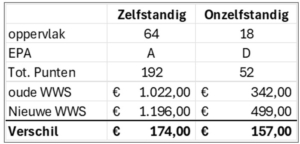On Tuesday, June 25, 2024, the Senate approved this controversial bill. With the implementation of this law, the existing housing valuation system in the social rental sector will become mandatory for rental values up to €1,123 (186 points). Tenants renting within this price range will have access to the Rent Tribunal for disputes regarding rent prices, service costs, and/or property maintenance.
“The regulation will apply to new rental contracts as long as necessary and will be evaluated every five years.”
Source: Senate
What does the Affordable Rent Act mean for you?
This means that when signing a new rental agreement, you must take this law into account. You do not have to navigate this alone—we are here to advise you.
For every tenant change or lease termination, we already provide you with a rental advisory report along with a points assessment. This process will remain unchanged. In some cases, our recommendation will be to upgrade the property, while in others, we may advise selling the property.
We anticipate that the latter recommendation will be given more frequently than before, especially since the option for temporary rentals has been significantly restricted.
Alternative Options
The sales market is currently strong. You may want to expedite the (vacant) sale of your property. At Randstadwonen Beheer BV, we offer the following options:
- Relocating the tenant and selling the property vacant.
- Selling the property to the tenant.
- Selling property/properties as an investment.
The costs of these different processes vary and depend, among other factors, on the current tenant. If you are interested, we are happy to provide a free cost estimate.



